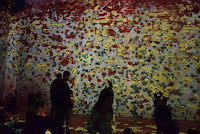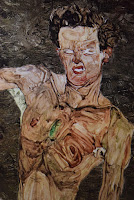I couldn't help buying Kapuscinski's last book which according to critics has been praised as being a superior work on reflective instruction, as well as a fine testament to his genius and an unmissable treat.
I first read Another day of life upon returning from Angola and The Emperor, Shah of Shahs following my first visit to Iran, as if I needed to know his impressions and what he had to say about those two countries. This time it was nevertheless quite different ... it was the title of the book that arose my curiosity and I am glad it did because I ended up immersing myself into his and Herodotus' travels.
I have reinforced a few of my convictions regarding travelling as I read some of Kapuscinski's written words, whilst many others have made me ponder ..., I have thus selected to copy down a few.
"A journey, after all, neither begins in the instant we set out, nor ends when we have reached our doorstep once again. It starts much earlier and is really never over, because the film of memory continues running on inside of us long after we have come to a physical standstill. Indeed, there exists something like a contagion of travel, and the disease is essentially incurable."
"(...) he decides probably toward the end of his life, to write a book because he realizes that he has amassed such an enormous trove of stories and facts that unless he preserves them, they will simply vanish. His book is yet another expression of man's struggle against time, against the fragility of memory, its ephemerality, its perpetual tandency to erase itself and diappear. The concept of the book, any book, arose from just this battle. The written word has a durability, one would even like to say eternality. Man knows, and in the course of years he comes to know it increasingly well, feeling it even more acutely, that memory is weak and fleeting, and if he doesn't write down what he has learned and experienced, that which he carries within him will perish when he does. This is why it seems everyone wants to write a book."
"One must read (...) and every other great book - repeatedly; with each reading it will reveal another layer, previously overlooked themes, images and meanings. For within every great book there are several others."
"(...) each of them remembers something different - differnt and differently. (...) people remember what they want to remember, not what actually happened. Everyone colours events after his fashion, brews up his own mélange of reminiscences. Therefore getting through the past itself, the past as it really was, is impossible. What are available to us are only its various versions, more or less credible, one or another of them suiting us better at any given time. The past does not exist. There are only infinite renderings of it."
"(...) it would be better if he didn't grow up completely, if he stayed always in some small measure a child. Only children pose important questions and truly want to discover things. Herodotus learns about his worlds with the rapturous enthusiasm of a child. His most important discovery? That there are many worlds. And that each is different. Each is important. And that one must learn about them, because these other worlds, these other cultures, are mirrors in which we can see ourselves, thanks to which we understand ourselves better - for we cannot define our own identity until having confronted that of others, as comparison. And that is why Herodotus, having made this discovery - that the cultures of others are a mirror in which we can examine ourselves in order to understand ourselves better - every morning, tirelessly, again and again, sets out on his journey."
"Herodotus's mind is incapable of stopping at one event or one country. Something always propels him forward, drives him on without rest. A fact that he discovered and ascertained today no longer fascinates him tomorrow, and so he must walk (or ride) elsewhere, further away.
Such people, while useful, even agreeable, to others, are, if truth be told, frequently unhappy - lonely in fact. Yes, they seek out others, and it may even seem to them that in a certain country or city they have manages to find true kindred and fellowship, having come to know and learn about people; but they wake up one day and suddenly feel that nothing binds them to these people, that they can leave here at once. (...)and that yesterday' most riveting event now pales and loses all meaning and significance.
For all intents and purposes, they do not grow attached to anything, do not put down deep roots.(...) if asked which of the countries they have visited they like best, they are embarrassed - they do not know how to answer. Which one? In a certain snese - all of them. There is something compelling about each. To which county would they like to return once more? Again, embarrassment - tehy had never asked themselves such a question. The only certainty is that they would like to be back on the road, going somewhere. To be on their way again - that is the dream."
















































































































































